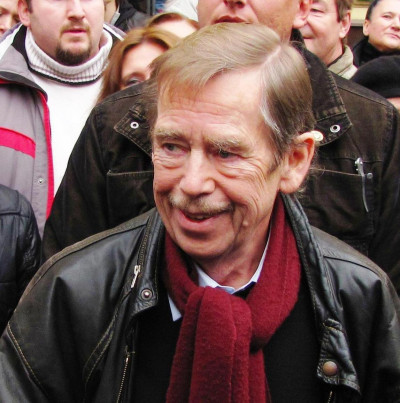The arrival of 1 January 2023 marked not only the start of a new year, but also the dawn of a new decade for the Czech Republic. Throughout 2023, the country celebrated three decades of sovereignty, freedom, and democracy - an achievement unparalleled in modern Czech history.
The Dissolution of Czechoslovakia: A Historic Turning Point
The dissolution of Czechoslovakia in 1992 marked a significant turning point. Following the fall of the communist regime, the growing divide between Czech and Slovak interests became apparent. Tensions escalated into conflicts such as the “hyphen war”, where the two nations could not even agree on the country’s official name.
On 17 July 1992, the Slovak National Council adopted the Declaration of Independence of the Slovak Nation, which was shortly followed by President Václav Havel’s resignation. A symbol of the division was the historic meeting between Czech Prime Minister Václav Klaus and his Slovak counterpart, Vladimír Mečiar, in the garden of the Tugendhat Villa in Brno.
Ultimately, negotiations led to the peaceful separation of Czechoslovakia into two independent states: the Czech and the Slovak Republics. On 1 January 1993, the Czech Republic emerged as a sovereign entity with Václav Havel assuming the presidency shortly after. Thus, a new era began.
The Birth of Democracy
It is not just the birth of the country that is worth commemorating. Among the crucial documents celebrating their 30th anniversary is the Constitution of the Czech Republic adopted on 16 December 1992. This foundational document established the Czech Republic as “a sovereign, unitary, and democratic state governed by the rule of law”. It enshrined principles of human rights, democracy, and the separation of powers, laying the groundwork for the country’s democratic institutions.
Another significant document is the Charter of Fundamental Rights and Freedoms. With its origins in 1991, it had already been part of Czechoslovakia’s legal framework, but its future in the new country was uncertain. Its incorporation into the constitution faced opposition from the Civic Democratic Party (ODS) and the Civil Democratic Alliance (ODA), and a compromise had to be reached, introducing the concept of “constitutional order”. As a result, the Charter was seamlessly integrated into the legal system, distinct from the Constitution, but holding an equivalent legal standing.
Both documents, as well as other laws adopted after the dissolution, are the cornerstones of Czech democracy and mark a significant departure from the past regime.
Key Milestones
Over the past three decades, the Czech Republic has made remarkable progress. From strengthening democratic institutions and fostering economic growth to asserting its presence on the international stage, several key milestones stand out.
In 1993, the Czech Republic became a member of the United Nations and affirmed its status as a sovereign state. Joining NATO in 1999 and the European Union in 2004 further underscored a commitment to collective security and strengthened cooperation with European neighbors.
The establishment of the Senate, the upper house of the Parliament, followed by the first elections in 1996 meant a significant step towards enhancing representation and diversifying the legislative process. In 2000, the creation of administrative regions ("kraje") aimed at decentralizing governance and empowering local authorities.
Fast forward to 2013, the Czech citizens got the chance to directly elect their president for the first time ever. All these landmarks show us what a remarkable journey the Czech Republic has undergone.
Anniversary Celebrations in 2023
The year filled with festivities culminated in a ceremony held on 30 June 2023 at the Spanish Hall of Prague Castle under the auspices of the President, Petr Pavel. It was attended by representatives from various sectors of society, including senior constitutional officials, representatives of security forces, academics, and cultural figures. The event featured speeches by prominent figures and a musical performance by the Band of the Castle Guards.
Other activities included exhibitions and trade fairs showcasing the defence and security industries. These events highlighted the Czech Republic's achievements and contributions to international security. Notable among these exhibitions were IDEX in Abu Dhabi, DEFEA in Athens, IDET in Brno, and EDEX in Cairo.
As the Czech Republic reflects on 30 years of independence and democracy, it also looks towards the future with optimism. The country remains committed to upholding democratic values and contributing to international peace.
Sources
Czech30. Aktivity. Retrieved from https://www.czech30.cz/aktivity/.
Czech30. Slavnostní ceremonie. Retrieved from https://www.czech30.cz/ceremonie/.
Czech30. O projektu. Retrieved from https://www.czech30.cz/o-projektu/#:~:text=V%20roce%202023%20%C4%8Cesk%C3%A1%20republika,te%C4%8F%20chceme%20odvypr%C3%A1v%C4%9Bt%20cel%C3%A9mu%20sv%C4%9Btu.
Hádek, J. Ústavní aspekty zániku československé federace (master’s thesis). Retrieved from https://is.muni.cz/th/zc980/Ustavni_aspekty_zaniku_ceskoslovenske_federace.pdf.
Klabenešová, T. (2023). Aktuality české sekce. Bulletin of the Center for Human Rights and Democratization, No. 1, vol. XV, p. 43.
Kuklová, T. (2021, 22 April). Česká Listina základních práv a svobod oslavila 30 let [blog post]. Retrieved from https://www.centrumlidskaprava.cz/ceska-listina-zakladnich-prav-svobod-oslavila-30-let.
The Constitution of the Czech Republic (No. 1/1993 Coll.). Retrieved from https://public.psp.cz/en/docs/laws/constitution.html.
Photo
First Czech president, Václav Havel. Velvet Revolution anniversary 2010, author: David Sedlecký, 17 November 2010, source: Wikimedia Commons, CC BY-SA 3.0 Deed.

